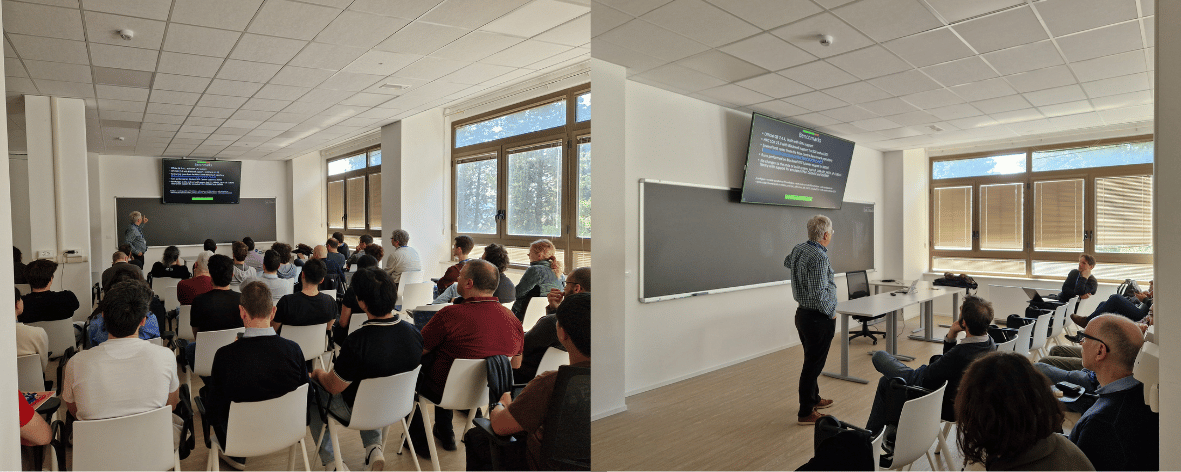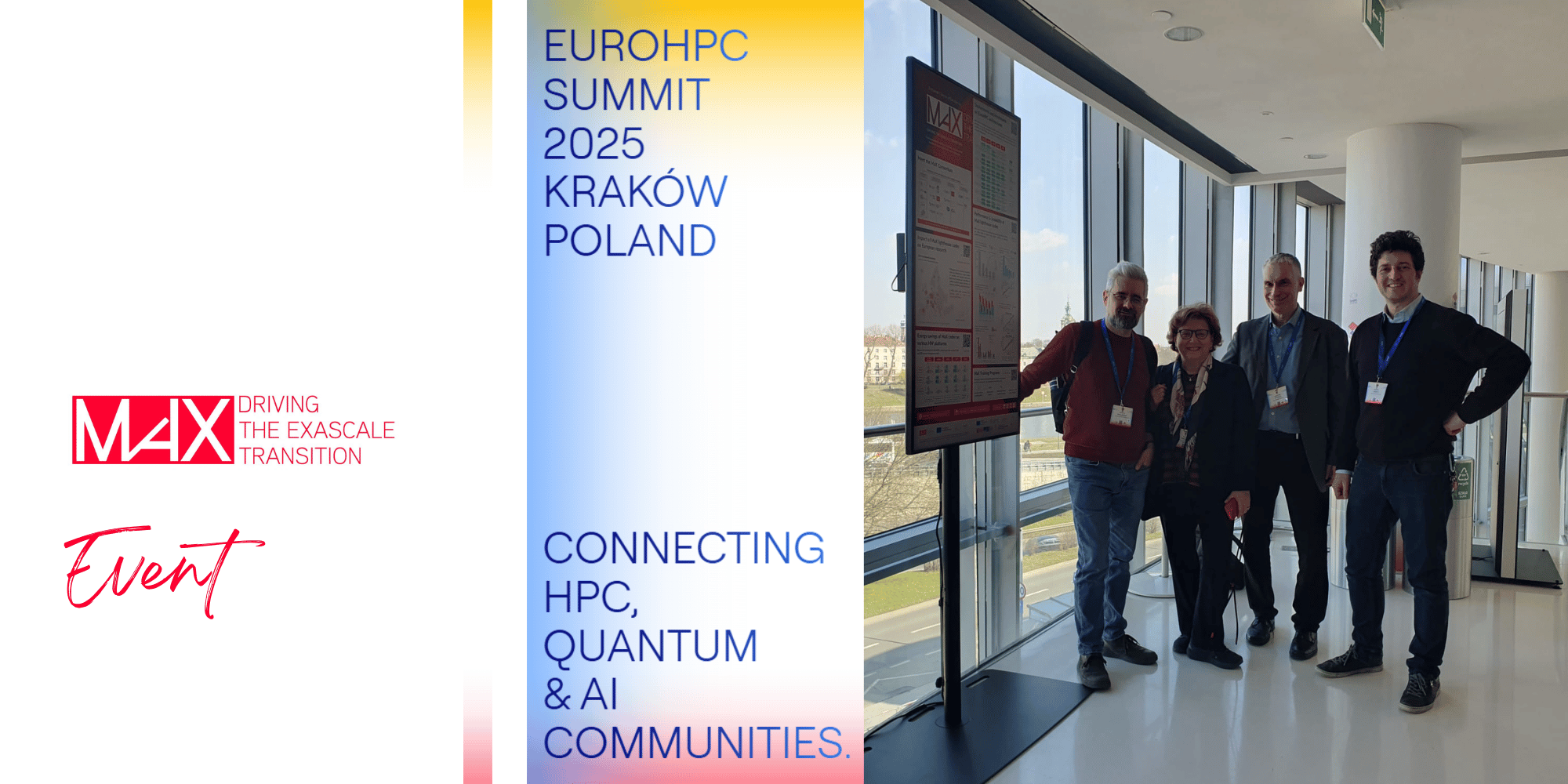A Case Study of 64-bit Floating Point Emulation in QuantumESPRESSO
On 3 April 2025, Massimiliano Fatica, Director at NVIDIA, delivered a seminar at the MHPC Lecture Hall in Trieste to discuss the impact of evolving computer architectures on scientific computing, particularly in the context of AI-driven advancements in reduced- and mixed-precision computing.

On 3 April 2025, Massimiliano Fatica, Director at NVIDIA, delivered a seminar at the MHPC Lecture Hall in Trieste. The event was organised by MaX – the Centre of Excellence for Materials Design at the Exascale, in collaboration with Quantum ESPRESSO and ICSC – the National Research Centre for High Performance Computing, Big Data and Quantum Computing.
The seminar focused on the impact of evolving computer architectures on scientific computing, particularly in the context of AI-driven advancements in reduced- and mixed-precision computing. Modern GPUs support various low-precision formats such as FP16, BF16, and FP8, which can enhance computational efficiency. The discussion explored how mixed-precision algorithms and emulation techniques can leverage these capabilities while maintaining accuracy.

Fatica presented a novel approach developed at NVIDIA that enables the acceleration of DGEMM and ZGEMM operations by emulating FP64 and FP32 matrix multiplications using INT8 Tensor Cores. This method improves performance per watt without compromising computational precision. The talk included results from Quantum ESPRESSO case studies, demonstrating the effectiveness of this strategy in real-world scientific applications.
This seminar provided valuable insights into emerging computational techniques that can enhance the efficiency of high-performance scientific simulations. MaX remains committed to fostering knowledge exchange and collaboration in the HPC community to advance materials science and computational research.



